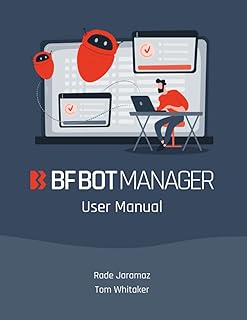The sports betting landscape has transformed significantly with the integration of technology, particularly through the emergence of sports betting bots. These advanced tools harness artificial intelligence (AI) and machine learning to process vast data sets, offering insights that were once out of reach for the average bettor. As the sports betting industry expands, comprehending the functionality of these bots and their impact on responsible gambling is paramount. This article delves into the realm of betting algorithms, examining their advantages, constraints, and optimal strategies for utilization while emphasizing the importance of responsible gambling practices.
Conceptually, a betting bot is an automated software application devised to execute bets on behalf of users. By employing sophisticated algorithms, these bots can swiftly analyze real-time data across various sports genres like football, basketball, and soccer to identify potential betting opportunities, enhancing the betting experience by processing information more efficiently and accurately than human capacity permits.
One of the primary benefits of using betting bots is their efficiency and speed in processing historical data and market trends, enabling users to navigate the dynamic sports betting realm adeptly. Furthermore, these bots ensure consistency by eliminating emotional biases, thus basing decisions on data-driven strategies. Operating 24/7, they can place bets at any time, even in the user’s absence, offering access to advanced algorithms like AI-powered predictions and neural networks for enhanced accuracy.
Functionally, betting bots connect to online bookmakers through APIs or web interfaces, scanning for profitable opportunities based on predefined criteria such as odds, player statistics, injuries, and team performance. AI betting bots utilize machine learning models to evolve over time, learning from past outcomes to refine future predictions. However, given the potential risks of automated betting, it is crucial to monitor bot activity closely to align with responsible gambling limits.
When selecting a sports betting bot, key features to consider include a user-friendly interface, customization options for personalized strategies, access to data analysis tools, and reliable customer support. Various types of betting bots cater to different user needs, such as AI betting bots for accurate predictions, automated bots for consistent and emotion-free betting, hybrid bots for customizable strategies, market-specific bots for specialized knowledge, and in-game betting bots for real-time adjustments.
Several popular sports betting bots like BetQL, Dimers Bettorverse, Rithmm, Leans AI, Cappers.ai, and WagerGPT offer AI-powered predictions and analytics across major US sports leagues. While these platforms are valuable tools, it is essential to exercise caution and not solely rely on AI predictions for betting decisions.
AI sports betting bots analyze extensive datasets, including historical data and player performance, to identify patterns and correlations using machine learning and neural networks. Strategies for AI betting bots include making informed decisions based on data, adaptive learning from past outcomes, and diversifying bets across different markets to manage risk.
Effective risk management, continuous learning, and a focus on long-term strategies are essential for a sustainable and enjoyable betting experience with betting bots. By blending cutting-edge technology with traditional betting practices, bettors can potentially enhance their outcomes, but responsible use and adherence to gambling guidelines remain paramount.
📰 Related Articles
- Essential Guide: Sports Betting Strategies, Terms, and Risks Explained
- AI Tools Transform Sports Betting Strategies for Informed Players
- AI Tool ChatGPT Enhances Sports Betting Strategies in 2025
- VAR Impact on Sports Betting Strategies: Expert Recommendations
- Sports Betting Academy: Enhance Skills and Strategies at Bet Central






